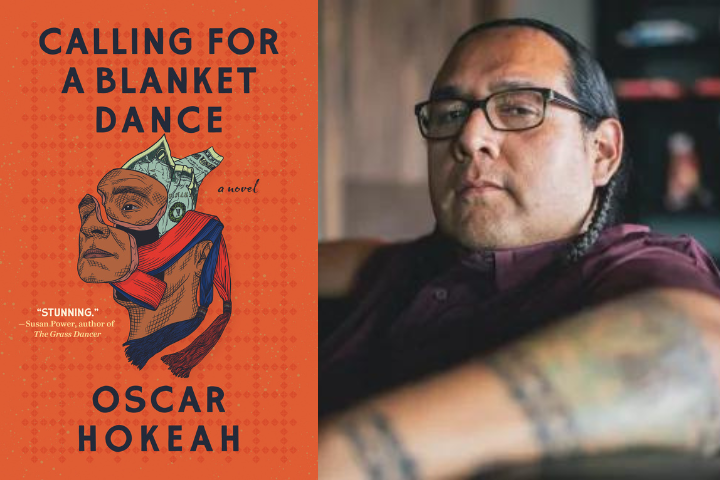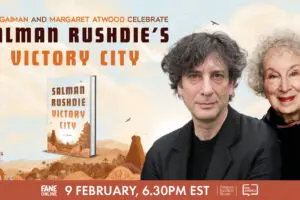Dareen Tatour, a Palestinian poet, spent more than two years in jail and under house arrest after releasing a video publication of her poem “Resist, My People, Resist Them.” Prior to her arrest, Tatour lived with her family in Reineh, a small town outside of Nazareth, where she wrote poetry—participating in local poetry readings—and was a photographer. Convicted on charges of incitement to violence and support for terror organizations, Tatour was sentenced to five months imprisonment. After her release in 2018, Tatour said, “I regret being sent to prison for a poem, but it will be impossible to stop my writing.”
In conversation with Rachel Powers, the PEN/Barbey Freedom to Write Center Program Assistant, Tatour discusses poetry as an archive, her continued writing, and the art of resistance.

1. How does your identity shape your writing? Is there such a thing as “the writer’s identity?”
Yes, in my opinion there is an identity for every writer, about myself, since I started writing or even since I became interested in poetry and reading, it was the political actions that aroused my interest. As for the identity of my writing, it is the poetry of resistance. I write political poetry of a revolutionary and resistance character. Even with poems specific to women, for example, the identity of my poems is the identity and character of the resistor and the rebel. Writing political and resistance poetry in Palestine is tantamount to documenting what is happening to us because of the occupation.
2. You spent more than two years in jail and under house arrest between 2015 and 2018 for your poem “Resist, My People, Resist Them.” In one line, you pronounce, “Write me as prose on the agarwood.” How do you see literature as being carved into Palestine’s culture and history?
In Palestine, writing against the occupation is considered resistance, and for this reason the poet or writer is imprisoned by the occupation government, or even killed, as has happened with other writers.
Ever since the British stepped foot on Palestinian land, there has been an integrated monitoring of all circumstances and colors of suffering that the Palestinian people have been through: before and after the Nakba; inside and outside the occupied homeland; politically, socially, economically, and militarily. Rightly so, contemporary Palestinian poetry has been able to be an essential source for the study of the Palestinian cause.
Poetry is considered among the most important arts of expressing the Palestinian personality and proving its identity and being, especially after 1948 and the events of the Nakba and the occupation, whose foremost goals were to erase all that is Palestinian and swallow up the place to which it belongs geographically and culturally, and even uprooting the Palestinian Arab people and abolishing their existence.
Accordingly, “Palestinian poetry and writing” in general is considered one of the most important cultural things to establish this identity and defend the Palestinian personality and the homeland to which it belongs, and at the same time demonstrate the importance of poetry as one of the aesthetic and cognitive carriers produced by this people to perpetuate their existence and the values in which they believed, and make efforts, lives, and blood to preserve this existence.
“From the moment the soldiers entered my house and took me, I felt that poetry was waiting for me.”
3. What is your writing practice like? Do you think that your ideas about poetic craft, and particularly the element of constraint, have been influenced by your time in custody?
When I write, I have a habit that has not changed, which is that I grab a notebook and a pen, squat on my bed with dim light, and write a poem. I still use pen and paper and love to write on the bed.
It is natural that the place affects the poet, and for myself, prison inspired me to write poems and stories that I never expected that I would write.
Many are the circumstances that we go through… We, poets, urge us to write, lead us to writing, writing is waiting for us. This is what happened to me while I was in a prison cell. From the moment the soldiers entered my house and took me, I felt that poetry was waiting for me.
4. What do you see as the role of writers in society?
The writer’s role in society can be summarized as being the son of his environment, affected by it and affected by it according to his ability, and the influence and influence is related to how close the writer is to the rituals of life practiced by the community.
The writer is a human being endowed by God with the ability to express his thoughts, emotions, and opinions in a clear and beautiful manner at the same time, and each writer has his own goals, method, and style, and the importance of the writer in society is evident through the ideas he presents that help change a person’s view of his religion, himself, his country, and his principles, and illuminate and guide him the way. Either way, and in order for the writer to get a distinguished role, he must present something special.
The writer must mingle with society, associate with society, eat what they eat and drink what they drink, suffer from what they suffer, ride the same means of transportation, and live as the people live as a member of it. To be a voice for those who have no voice.
5. You’ve written about visiting Jaffa and observing people who were visiting the ocean for the first time, who “did not know what the sea means, the meaning of swimming in its waters and feeling its salt.” How do you try to encounter the idea of “meaning” and meaning-making in your writing?
To live the experience even if it was in a different way. To feel people’s concerns, to be clear that I am with the common people, with the oppressed, with the marginalized group. I am a person who has lived through poverty, deprivation, imprisonment, and suffered enough violence. This in itself makes me feel, live, and write.
I only write about reality, and this is what distinguishes me. I only write what I see and live. In all my poems and writings, there is no imagination. Rather, I only write what I really live and feel. My writing is just documentation.
“The prison experience erased from my imagination the meaning of the fear of being imprisoned because of writing because I tried it, and now I write and wait for when they will come to imprison me again, simply because I can not put restrictions on my writing and my language.”
6. What is the relationship between place and language for you? Is there a certain way in which your poetry has changed your perceptions of space?

The place is what constitutes the language of the writer. In my opinion, for myself, the place is an essential thing for the formation of my language and my writings. I remember when I lived in Sweden for more than two years, the first moment I saw the change, I wrote about it, then the place, Sweden, became something in which I did not see any of my details, my identity or my history, so I stopped writing during the two years, and when I returned to Palestine the feeling came back to me again. So I wrote. The place is the writer’s history and his feelings. This is what I live with my writing and my language. I can not write outside of Palestine. Palestine is the source of my language and my source of inspiration. Now I am in Palestine, I have returned to settle down, despite all the pain I am going through, and my language, my pen, and my feelings have returned.
7. How have you navigated censorship—and self-censorship—in your own writing?
I didn’t consider it there to pass. The occupation tried to force me to be a self-censor, but it failed miserably, because I write more freely than I was before prison. The prison experience erased from my imagination the meaning of the fear of being imprisoned because of writing because I tried it, and now I write and wait for when they will come to imprison me again, simply because I can not put restrictions on my writing and my language.
8. What do you consider to be the biggest threat to free expression for Palestinians today?
Occupation. Occupation policy. The existence of the occupation.
“Be direct with the reader, make the reader understand the intent of what you write without complication. Do not confine yourself to a way of writing, and do not postpone your ideas.”
9. In another one of your works, “Detaining a Poem,” you write, “From my eyes they drew a pulse of inspiration; / from my heart, the ability to sketch out meanings. / Then they said: beware!” To what extent do you see poetry as offering a theory of change?
Real poetry is the one that makes something for change, the poetry that did not yield to all the forces surrounding it. This is real poetry. We have not reached a stage where poetry has begun to make change, but I can say that rejecting poetry is one that refuses to submit to all ruling powers, and this in itself is a change.
10. What advice do you have for emerging writers?
Write your feelings and do not think about the future or fame, write only for your feelings and for the sake of standing with the oppressed and the hungry. Be direct with the reader, make the reader understand the intent of what you write without complication. Do not confine yourself to a way of writing, and do not postpone your ideas. Read a lot. Arm yourself with your siding with the cause of your community and your people.
Dareen Tatour is a Palestinian poet and photographer. She is the author of the poetry collection The Last Invasion (or War). She spent two years imprisoned and under house arrest by Israeli authorities between 2015 and 2018 after publishing her poem “Resist, My People, Resist Them.” Her latest collection of poems and a novel titled An Appointment with the Whales were ready for publication, but were on a laptop confiscated by Israeli authorities as evidence in her case.




